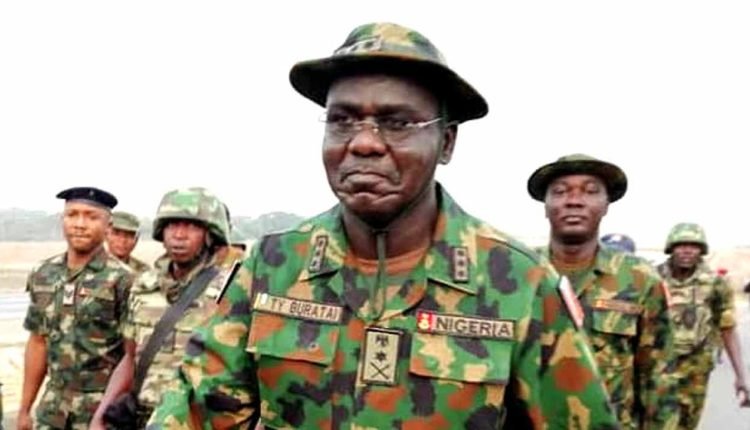Buratai Supports Tinubu’s Stand Against Foreign Military Bases
Buratai Supports Tinubu’s Stand Against Foreign Military Bases
Former Chief of Army Staff (COAS), Lt. General Tukur Yusuf Buratai (rtd) has stressed Nigeria’s strategic autonomy and supports President Ahmed Bola Tinubu-led administration’s resolve not to allow any foreign military force in its sovereign territory.
Buratai spoke as some northern leaders alleged that the US and French governments had been lobbying Nigeria to sign new defence pacts, clearing the way to redeploy their expelled military forces from the Sahel.
The soldier turned diplomat, who was also Nigerian Ambassador to the Republic of Benin, said, “Nigeria should not allow any foreign force on its soil. I commend the federal government for its stand against the reported planned redeployment of the US Forces that are being withdrawn from the Niger Republic to Nigeria.”
He added, “The information minister and national orientation made it very clear that Nigeria had no plan to harbour US troops on our soil.”
In a recent letter to President Tinubu, a crop of northern leaders warned that the presence of foreign military bases would worsen already strained relations between Nigeria and Niger Republic as well as neighbouring Francophone countries and asked the president to prioritise the nation’s security over “short-term strategic alignments,”.
In an interview with national television last Tuesday, David Greene, US chargé d’affaires in Nigeria, refuted the reports.
“I am not aware of such conversation, and I am not sure whose purpose it serves to agitate on this point,” he said.
But Buratai holds that given Nigeria’s continental and regional clout, strategic autonomy remained the best doctrine from which to manage an increasingly disruptive international geopolitical theatre.
To buttress his position, the former COAS recalled that in 2014 and 2015, the Nigerian government asserted its sovereign autonomy and declined the deployment of UN or AU international peacekeeping forces to fight Boko Haram.
“The Nigerian government rejected the deployment of a UN or AU international peacekeeping force to fight Boko Haram in 2014 and 2015.
Read Also: FCE Gwoza: Zulum approves N200m, houses for take-off
“The birth of the new MNJTF with its HQ in N’djamena was the solution to a foreign force deployment that could have placed these foreign forces as interposition force between the Boko Haram territory and the Nigerian territory.
“The implication of this is that it could have given territorial legitimacy to the insurgents,” he said.
“Similarly, as COAS, I had to quickly recover Gamboru-Ngala from the insurgents to prevent the deployment of the Chadian Forces on Nigerian soil. The MNJTF Concept of Operation was to have 3 Sectors.
“Sector 1 deployed in Cameroon’s Far North Region, comprising all Cameroonian troops. Sector 2 was to be deployed in Ngamboru-Ngala on Nigerian territory, comprising all Chadian troops. Sector 3 was to remain in Baga in Northern Borno State, comprising all Nigerian troops.
“Having denied the Chadian forces deployment on Nigerian soil, Sector 2 was then deployed in Baga Sola in the Lac Region of Chad. (LEADERSHIP)

